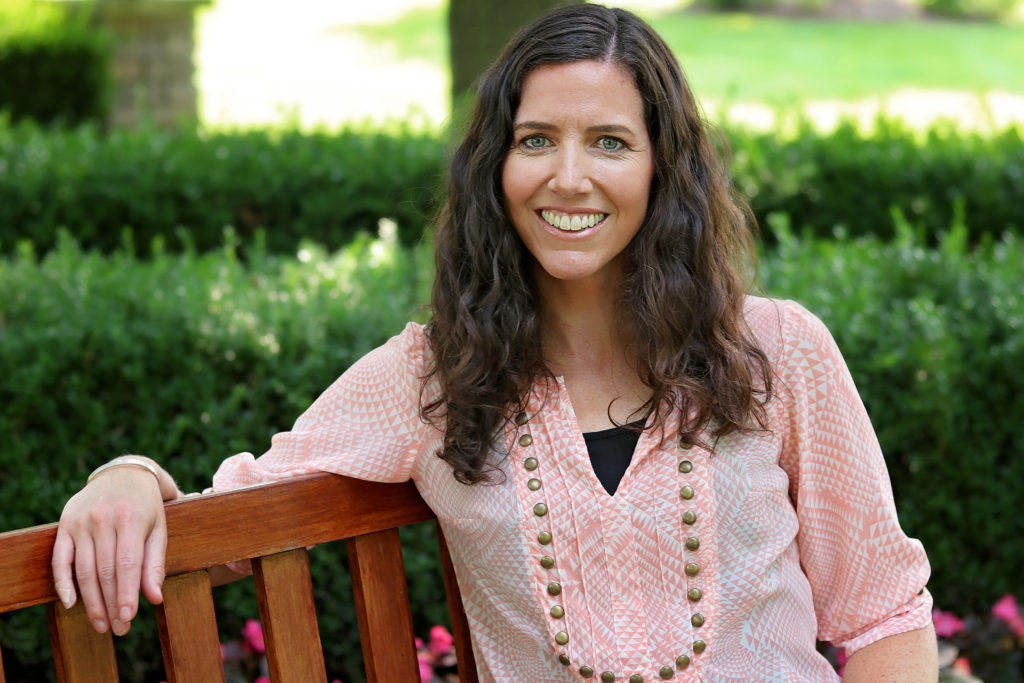Set Free: An Eating Disorder Recovery Story

Jennifer’s Story
You messed up again. I knew you couldn’t do it right. You’re just not good enough. This is all your fault. You’re such a failure. I can’t believe you’re even struggling with this. You’re worthless. No one will ever love you…
These are the lies I constantly heard—before I ever developed an eating disorder. These lies affected how I viewed basically everything in my life. Their volume surged at moments of doubt and darkness. I entertained the lies and started to believe them rather than discarding them. I still engaged with the truth but became lost in the sea of lies. Soon the lies consumed my thoughts, and, sadly, they seemed realer to me than the truth.
Believing the lies caused me to stray off course and like myself less than I already did. They played repeatedly in my mind, and I was desperate to decrease their frequency and intensity. I became convinced that my situation would be fixed if I could just recreate how I used to be when I felt loved and accepted.
From Bad to Worse
Shortly thereafter, I started receiving positive comments from others about how I looked. They said things like, “You look great! Did you lose weight?” and “Are you working out?” I was surprised by what they said because losing weight wasn’t really on my radar. I was too consumed with the recurring lies in my mind to think about my body size and shape. But their comments made me feel good, and I started to worry about my weight and losing others approval. It just added to the list of all the ways I felt like I was disappointing people.
I started to become preoccupied with keeping people happy which now included keeping everything about my body size and shape the same. When asked about my new food and exercise regime, I told everyone I was “getting healthy” which was sadly praised.
As I set out to prove that the lies in my mind were wrong, my eating disorder was born. My eating disorder tempted me with empty promises of beauty, acceptance, worthiness, and success. But it didn’t fulfill what it had promised. Instead, it was the worst kind of cheater leaving me more unsatisfied and entrenched than ever. Eventually usurping God’s place as the master on the throne of my heart.
A Hard Recovery
As time passed, the positive comments I once received for “getting healthy” faded as my body became emaciated. My eating disorder was no longer helping me reach my goal of pleasing people and feeling better about myself. A few people expressed their concerns, but I was too entrenched to do anything to get better.
The lies were blaring non-stop—with more ammo than ever before. I knew I needed help, but I was too proud to admit I had a problem and too in denial of how big my problem was. Instead, I tried to pull away from people, avoid eating socially, and hide behind a façade of happiness. I convinced myself that no one knew, which was another lie I believed.
Eventually, I felt motivated to get better; so I asked experts to give me a recovery plan. I wanted three simple steps to get back on track, but there was no such formula. I soon discovered that I had allowed my eating disorder to grow so large that it wasn’t going to give up mastery over me as quickly or as easily as I had initially expected.
Will I Ever Recover?
For the next seven years, I tried to recover from my eating disorder. Battles were won, and battles were lost. But I kept fighting. Then one day, my treatment team told me how great I was doing and that I was probably doing as well as I ever would be. They told me, “Eating disorders don’t ever go away; they just have to be managed.” I was shocked—and devastated.
What? Seriously? But it’s not gone! I’ve been working so hard for seven years—and for what?
After that, I quit trying to get better. I quit trying to please everyone. I quit fighting back. As a result, I relapsed into a much deeper, darker mindset. I rapidly lost weight again. My treatment team had never seen me unmotivated and didn’t know what to do with me. Hopelessness set in, and it became harder to see my purpose in life. I didn’t feel like myself.
A Transformed Mind
When I reached out to a trusted friend and shared how I felt with her, she started praying for me. God began to move in a mighty way. Our prayer time together started a chain of events, where God enlightened me to all the lies I was believing and how they were keeping me trapped. It was like He turned on the light in a dark room and exposed all that was hiding inside.
As the truth began to permeate the lies, they became quieter and I heard them less frequently. Eventually, they stopped altogether. My urges to engage in the unhealthy behaviors of my eating disorder dissipated. God reclaimed the throne of my heart, and His Truth set me free.
Do not be conformed to this world, but be transformed by the renewal of your mind, that by testing you may discern what is the will of God, what is good and acceptable and perfect. (Romans 12:2 ESV)
Need Help?
The Kirsten Haglund Foundation (KHF) understands how costly eating disorder treatment can be. Through its reduced-cost Virtual Transitional Living Program, KHF offers adjunct support including certified eating disorder recovery coaching, meal and community support groups, recovery skills workshop and optional faith-based support. To learn more visit Transitional Living – Kirsten Haglund Foundation
Jennifer Smith Lane has written an award-winning Bible Study, birthed out of her own struggle with an eating disorder, to help others on their recovery journey and empower them to find freedom in Christ. She works with clients through KHF and her own private practice as a certified eating disorder recovery coach. She enjoys most her role as mom to her 3 kids.
